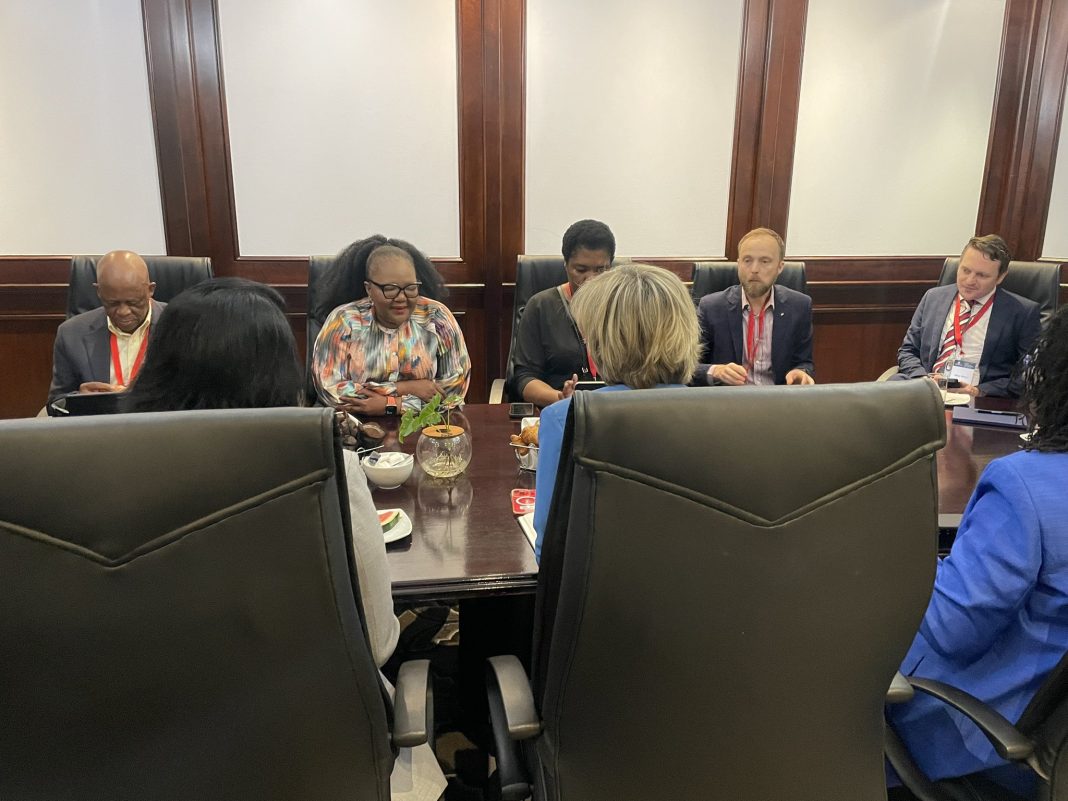By Thapelo Molefe
Education must no longer be seen as just a social investment, but rather as a vital economic tool driving national growth, competitiveness and productivity, according to Basic Education Minister Siviwe Gwarube.
Speaking at the launch of the World Bank’s economic update for South Africa, with a special focus on basic education, Gwarube said on Tuesday that rethinking the role of education was essential to unlocking South Africa’s economic potential.
“We need to reframe education as a fundamental driver of economic strategy,” Gwarube stated.
“Nations that have made long-term investments in education, like South Korea and Singapore, have seen their economies transform. It’s time for South Africa to follow suit.”
The minister’s call underscores the need for education to be embedded in national economic policy.
“Education is not just a social service; it is a macroeconomic policy tool that must be embedded in our national economic strategy,” she explained.
Gwarube also addressed the current challenges facing SA’s education system, citing troubling findings from global assessments like the Trends in International Mathematics and Science Studies (TIMSS), the Southern and Eastern Africa Consortium for Monitoring Educational Quality, and the South African Systematic Evaluation.
These reports reveal that a significant number of South African learners are struggling with foundational literacy and numeracy, putting them at a distinct disadvantage in a world increasingly driven by technology and science.
“Reports reveal that a majority of South African learners who reach the age of 10 cannot read for meaning in any language. And by Grade 5, learners are underperforming in math and science compared to their global counterparts,” Gwarube said.
“This puts them at a huge disadvantage as they move forward in a world where technological and scientific advancement is accelerating.”
Despite these challenges, Gwarube also highlighted recent successes, such as the record number of Bachelor passes achieved by the Class of 2024, which opens the doors for over 355,000 learners to gain access to higher education.
“This is a milestone worth celebrating,” she said, adding that it showed progress in improving access to education in South Africa.
“However, we cannot ignore the structural weaknesses that still persist and hold us back.”
Gwarube outlined a strategic approach to address the weaknesses in SA’s education system and drive transformation. Her three-pronged strategy focuses on broadening access to early childhood education to ensure that every child has quality early learning opportunities before entering Grade R.
She also emphasised the importance of strengthening the foundational phase of learning by prioritising teacher training, curriculum reforms and resources for young learners to ensure they acquired strong literacy and numeracy skills.
Additionally, Gwarube highlighted the need to scale up mother-tongue-based bilingual education to enhance comprehension and cognitive development, particularly during the foundational years.
“Investing in early education provides the highest return on investment, and we must ensure every child in SA has access to quality early learning,” Gwarube emphasised.
While the minister’s plan may sound simple, she stressed that achieving these goals would require a concerted effort from multiple sectors.
“We need strong partnerships in the private sector, research institutions and development agencies to support our efforts,” she explained.
“Government cannot drive these changes alone. We need investment in resources, systems support and research to ensure the necessary reforms are implemented effectively.”
As part of her broader reform agenda, Gwarube also announced the formation of the Education and Training Council (NETC), a new advisory body that would work closely with the government to provide strategic insights on education policies and ensure that funding models for public schools were equitable and sustainable.
“Since assuming our responsibilities last year, the deputy minister and I have critically examined how we spend our precious resources. Every cent must be spent efficiently to benefit learners and educators,” Gwarube stated.
“The funding models must be aligned with the needs of the sector, ensuring that resources are allocated where the greatest need exists.”
She also addressed the current financial pressures facing provincial education departments, acknowledging that the state’s financial constraints could impact the rollout of education programmes.
“In these economic times, we must ensure that every cent available for education is spent in ways that maximise benefits for learners and educators. We cannot afford any waste,” Gwarube said.
The minister also noted the importance of evidence-based decision-making in education reform, referencing the valuable insights provided by reports like the World Bank Economic Update.
“Reports, such as this one, are invaluable for helping us make informed decisions and ensuring that resources are allocated to the areas where they are most needed,” she said.
The minister concluded her speech by reinforcing the moral imperative of transforming the education system.
“Education is an economic necessity, not just a social programme. It is the foundation of South Africa’s future prosperity, and we must be relentless in our pursuit of educational excellence,” she said.
“Anything less, would be an absolute disservice to the millions of children who look to us as leaders to change their futures.”
INSIDE EDUCATION







